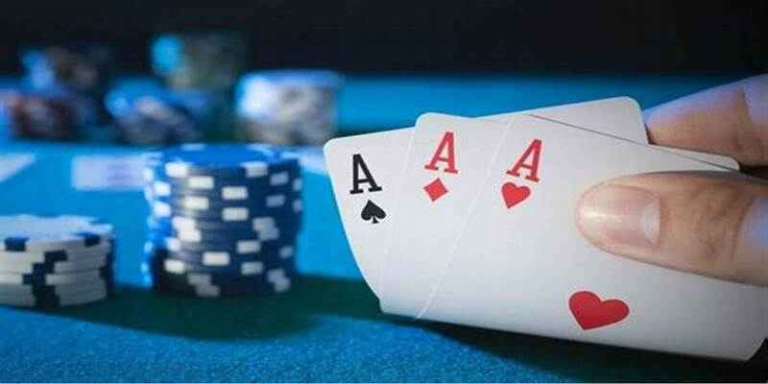How to Play Goa Game: Rules & Strategies Explained

Card games have always been a source of fun, bonding, and strategy in India. While traditional games like Rummy, Teen Patti, and Poker are widely played, the Goa Game has recently become a hot favorite among card enthusiasts. Combining elements of skill, observation, and a little bit of luck, Goa Game is both entertaining and competitive.
Whether you’re a beginner curious about how to play or someone looking to refine your strategies, this detailed guide will walk you through the rules of Goa Game and explain some powerful strategies to increase your chances of winning.
What is the Goa Game?
The Goa Game is a card game inspired by Indian Rummy and similar traditional card formats. It is usually played with two to six players using a standard 52-card deck. The objective is to arrange cards into valid sequences and sets before your opponents do.
The digital version of Goa Game has become even more popular, allowing players to compete online in real time, participate in tournaments, and even win rewards.
Basic Rules of Goa Game
To play Goa effectively, you must first understand the rules. While different versions of the game may exist depending on the platform or region, the general rules remain quite similar.
1. Number of Players
- Goa can be played with 2 to 6 players.
- The more players, the more challenging and unpredictable the game becomes.
2. Deck of Cards
- A standard 52-card deck is used.
- In some versions, two decks may be combined for bigger tables.
3. Objective of the Game
- The primary goal is to arrange cards into valid sequences and sets.
- A player must complete at least one pure sequence (without a joker) to make a valid declaration.
4. Dealing the Cards
- Each player is dealt a set number of cards (usually 13).
- The rest form the draw pile, and one card is placed face-up to start the discard pile.
5. Turn Sequence
On every turn, a player must:
- Draw a card (from the draw pile or discard pile).
- Discard one card to the discard pile.
6. Winning Condition
- The first player to arrange all their cards into valid sequences and sets and then make a valid declaration wins the round.
- Incorrect declarations result in penalties.
Key Terminology in Goa Game
Before jumping into strategies, you should be familiar with some important terms used in Goa:
- Sequence: Three or more consecutive cards of the same suit. Example: 4♠, 5♠, 6♠.
- Pure Sequence: A sequence without the use of jokers or wildcards. Example: 2♥, 3♥, 4♥.
- Impure Sequence: A sequence that uses jokers to substitute missing cards. Example: 7♦, Joker, 9♦.
- Set: Three or four cards of the same rank but different suits. Example: 8♠, 8♥, 8♦.
- Declaration: The act of arranging all cards into valid sets/sequences and announcing victory.
Step-by-Step Guide: How to Play Goa Game
Here’s a simple walkthrough to help you understand gameplay:
- Game Setup
- Players join the table.
- Cards are shuffled and distributed.
- Players join the table.
- First Move
- The player to the dealer’s left begins by drawing a card and discarding one.
- The player to the dealer’s left begins by drawing a card and discarding one.
- Drawing and Discarding
- Each turn, players repeat the process of drawing and discarding.
- The aim is to form at least one pure sequence and arrange the rest into valid sets or impure sequences.
- Each turn, players repeat the process of drawing and discarding.
- Observation
- While playing, carefully observe what cards opponents are discarding or picking.
- While playing, carefully observe what cards opponents are discarding or picking.
- Declaration
- When a player successfully arranges all their cards, they can declare.
- If the declaration is valid, they win the round.
- If invalid, penalties are applied, and the game continues.
- When a player successfully arranges all their cards, they can declare.
Scoring System in Goa Game
The scoring system may differ slightly between platforms, but the basic format is:
- Winner’s Score: 0 points (lower score is better).
- Losers’ Score: The value of unarranged cards left in hand. Face cards (K, Q, J) carry 10 points each, Aces may carry 10 or 1 point depending on rules.
- Joker: Usually carries zero points.
The player with the lowest total score at the end of multiple rounds is declared the overall winner.
Winning Strategies for Goa Game
Now that you understand the rules, let’s talk about strategies. Goa is not just about luck—it requires smart decision-making and observation.
1. Focus on a Pure Sequence First
- Completing a pure sequence is mandatory for a valid declaration.
- Prioritize it early to avoid penalties later in the game.
2. Discard High-Value Cards Early
- Holding onto face cards like K, Q, J, or A can be risky.
- If someone declares while you still have them, you lose higher points.
3. Use Jokers Wisely
- Jokers are powerful tools to complete impure sequences and sets.
- Don’t waste them in areas where you might be able to complete naturally.
4. Observe Opponents’ Moves
- Track which cards others pick from the discard pile.
- This helps you guess their strategy and avoid discarding useful cards.
5. Bluff Through Discards
- Sometimes discarding a card strategically can mislead opponents.
- For example, discard a card you don’t need but makes others think you’re forming a different sequence.
6. Practice Patience
- Don’t rush into declaring unless you’re 100% sure your arrangement is valid.
- A wrong declaration can cost you heavily.
Common Mistakes to Avoid
Even experienced players sometimes make simple errors in Goa. Watch out for these pitfalls:
- Ignoring Opponents: Focusing only on your hand can make you miss important clues about others’ strategies.
- Holding Too Many Cards for Too Long: Waiting for the “perfect” card can backfire if someone else declares first.
- Premature Declaration: Declaring without a proper pure sequence leads to big penalties.
- Overusing Jokers: Relying too heavily on jokers weakens your long-term strategy.
Goa Game vs Rummy – Are They the Same?
Many players wonder if Goa is simply another name for Rummy. While the gameplay is similar, Goa often comes with regional variations and unique scoring systems that set it apart. Goa is generally simpler, faster-paced, and often preferred in casual play or online gaming apps.
Tips for Playing Goa Game Online
If you are playing the digital version of Goa Game, here are some extra tips:
- Start with Free Games: Practice without investing money at first.
- Use Bonuses and Rewards: Many apps provide daily login bonuses—use them wisely.
- Set a Budget: If playing cash games, always play responsibly.
- Leverage Private Tables: Invite friends and practice before joining public tournaments.
Final Thoughts
The Goa Game is more than just a card game—it’s a blend of tradition, skill, and entertainment. Whether you play offline with family or online with players around the world, it sharpens your strategic thinking and keeps you engaged.
To recap:
- Learn the basic rules (pure sequences, sets, discards).
- Practice building winning strategies (focus on pure sequences, observe opponents, discard high cards).
- Avoid common mistakes and stay patient.
So the next time you’re looking for a fun yet challenging card game, remember these Goa Game rules and strategies. With practice and smart play, you’ll soon find yourself winning consistently and enjoying the thrill of this exciting Indian card game.





